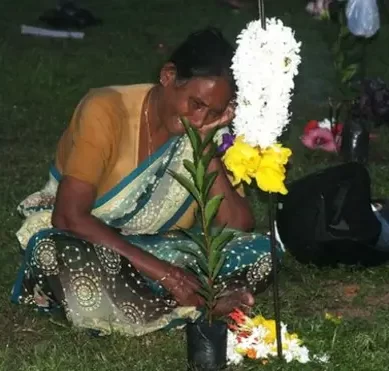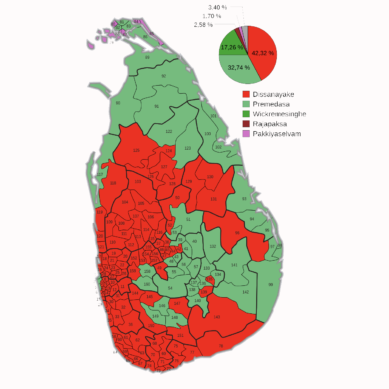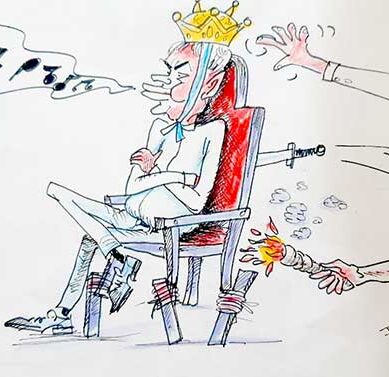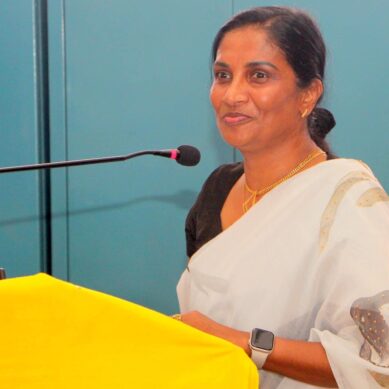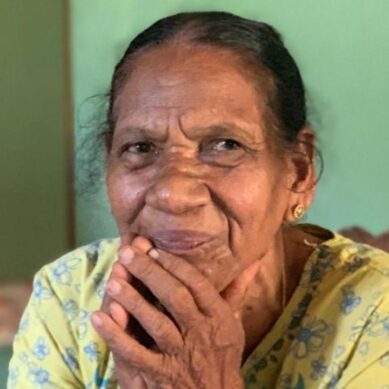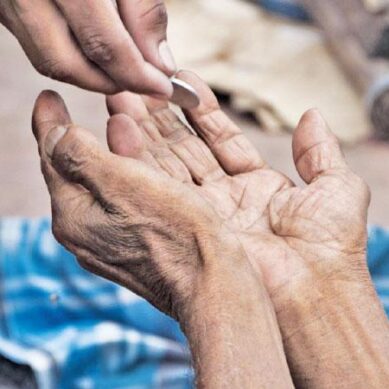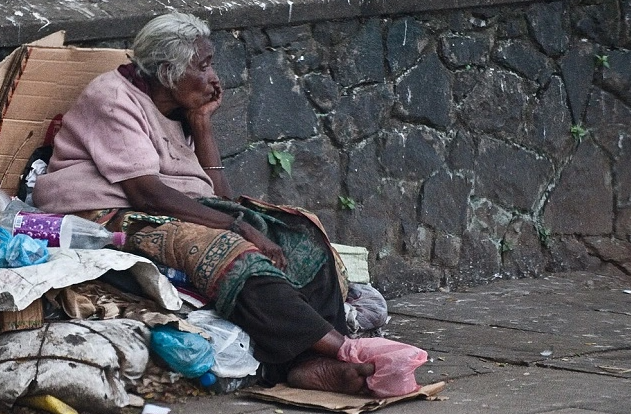
She quivered in the rain as it pelted down on the tin roof of the bus stop. Her hands tucked in between her dirtied skirt as she ignored the cries of her growling stomach. She turned on her hip, aching from the arthritis she could no longer afford to buy medication for. As she lay on the cold concrete pavement, squinting her eyes when the passing headlights shone too bright, she wondered how she ended up here. How someone like her, who worked all her life, could had a house and ate three meals a day, end up homeless and on the streets?
Tears trickled down her wrinkled, sagging cheeks. Not because she was homeless. After all, being labelled homeless is not as hurtful as being abandoned by her very own flesh and blood. The child she held the hand of as she walked them to school. The child she proudly watched graduate university. The child she woke up for at the crack of dawn to pack their lunch for work. The child she believed would take care of her as lovingly as she had taken care of them.
The frail and feeble elderly are being abandoned on the streets or dropped off at aged care homes, left with only the false hope that their children will someday return for them. Sri Lanka has the fastest growing ageing population across South Asia. Almost 16% of Sri Lanka’s 22 million population are aged over 60, and by 2041, it’s expected to rise to a massive 25%. With the current economic crisis worsening the financial stability of households, the elderly are being inhumanely discarded. Unfortunately, even prior to the economic crisis, elders were being castoff as a burden by their own children. It’s become a prominent social issue that many elderly homes and charities are begging the government to address. But to what extent can the government really solve this issue?
In most cases, it is cultural for children in Sri Lanka to continue living with their parents well after marriage. Supposedly, one big ‘happy’ family living under the same roof. We’ve all heard of many a story of parents who have signed over deeds to houses and soon enough, the parents are thrown out of their own homes. ‘One day, this will all be yours,’ a Sri Lankan parent will often say to their child, referring to their businesses, properties or savings. While the gesture comes from a loving place, these words and actions breed a sense of entitlement within their child. They grow to believe it’s their birthright.
By constantly reassuring their child that they will be given everything that the parents own, the child will expect ownership over an inheritance they didn’t earn. It’s not wrong to hand down family heirlooms or properties but it’s wrong to instil a sense of entitlement and expectation in a child. Entitlement also breeds other concerning characteristics such as a lack of accountability and selfishness. These characteristics only become more intense as they grow older. The brutal truth is that Sri Lankan parents are responsible for their children’s sense of entitlement. You can’t expect a child who has been taught from a young age that such behaviour is appropriate, to grow up and change out of that mentality.
The World Health Organisation claims that the best solutions for elder homelessness is by encouraging children to leave their parents in aged care homes. This solution, however, presents its own set of issues. 1 in 6 individuals aged 60 years and older have been subject to some form of physical, sexual, psychological or financial abuse over the last year. With the economic crisis making it difficult to afford medications, food and other basic necessities, caregivers and guardians often take this stress out on elders. The WHO itself recognises that the elderly home staff account for 64.2% of the recorded elder abuse.
So what’s the solution? It’s not implementing a universal pension system mandated by the government. It’s not opening more aged care homes that are government subsidized. It’s not better training aged care staff to tend to the specific needs of elder. While these solutions provide some relief, it’s all temperamental.
We need to change our mentality. It’s not about whether or not we should sign over our inheritance, it’s about raising children who understand that we worked hard to provide them with the comfort they are now enjoying. We need to tell our children that we worked hard to put a roof over their head and pave our own career paths. We need to tell them that we worked hard to attain this lifestyle and self-respect. Nothing was handed to us and nothing will be just handed to them.
It’s too late for the mothers and fathers already abandoned on the street, but it’s not too late for the rest of us. Let’s raise children who understand the value of earning their place in society and who won’t see you as a burden, but as the loving parent you’ve always been. What you do with your wealth is your choice and not their birthright.
~Tharika Surandi ~




